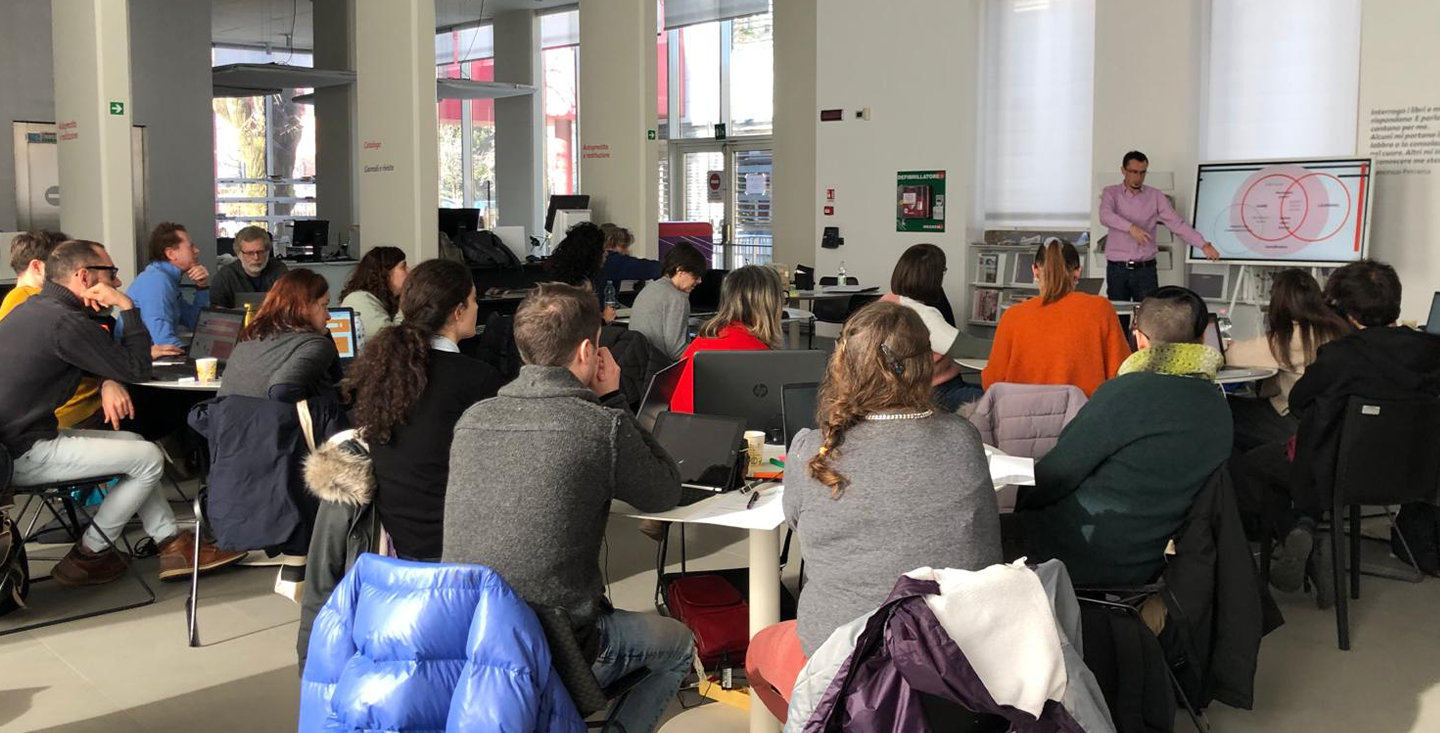Serious games help students improve their transliteracy skills

Can you build up your STEAM skills playing serious games?
The Erasmus + project TLIT4U – Improving Transliteracy Skills through Serious Games means to do just that. Its objective is to spark off students’ skills in STEAM subjects through applied video games, otherwise known as serious games. Apart from their educational purpose, serious games are highly inviting platforms that propose immersive and interactive experiences to stimulate learning and make it fun. The project was set up to develop and implement innovative serious games designed to work on the transliteracy skills of young people and adults, therefore also countering the onslaught of fake news.
Among the project’s initiatives, we would like to highlight “Mettiti in Gioco! Transliteracy e strategie di gamification” (“Put yourself into Play! Transliteracy and Gamification Strategies”), held at the Cultural Centre and Library Pertini in Cinisello Balsamo (Milan) on the 5th of February 2024. The event was organised by Fondazione Politecnico di Milano and CSBNO – Culture Socialità Biblioteche Network Operativo (a library consortium, formerly Consorzio Sistema Bibliotecario Nord Ovest). Around 30 librarians tried out a device to select “transformative” games for education, the “TLIT4U GAME SELECTION TOOL”, and took part in a “game storm”, where they started from the theoretical basis of gamification and then became involved in how to design serious games tackling specific subjects.
We wanted to understand how these tools can help young people and adults develop new skills, so we asked Lucia Coletti, project leader for Fondazione Politecnico di Milano, to explain how these serious games work and what is their added value.
“We could also call serious games ‘transformative games’, as they ‘transform’ learning. People learn because it is fun and because they are strongly involved emotionally and intellectually. For game-based learning to work, teachers, or better facilitators, must know the games inside out, have a clear idea of the type of game they want to use, and think along the lines of fun and entertainment. At the same time, they should be clued up on the key elements of the subject being studied, and be strongly aware of the message they want to send to their target audience”.




